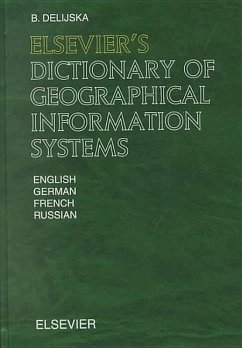Elsevier's Dictionary of Geographical Information Systems contains 4,040 terms with about 1,700 cross-references that are commonly used in the theory and practice of geographical information systems. The terms were selected according to their significance or frequency of use. The terminology covers the areas of geoinformatics, geostatistics, computer cartography, geospatial databases, computer graphics, geodesy, photogrammetry, remote sensing, hardware and software for introduction, processing and visualization of geospatial data, etc. Geographical information systems are modern, widely distributed and strategic tools in many human activities (land survey and regulation, ecology, forestry, agronomy, demography, hydrology, urban planning, transport, etc.).
Elsevier's Dictionary of Geographical Information Systems will be a valuable tool for specialists, scientists and students and for everyone who is interested in this area.
Elsevier's Dictionary of Geographical Information Systems will be a valuable tool for specialists, scientists and students and for everyone who is interested in this area.
"There are not very many GIS dictionaries in print; so this addition to the field is welcome." --American Reference Books Annual, 2003"Those juggling multiple languages while working with GIS will find this multilingual dictionary a welcome aid. ...This dictionary is helpful to those writing software documentation or contracts or internationalizing programming code between languages. ...Delijska has given us a solid plank to throw across the language gap." --Transactions in GIS, 2004








